We don’t get out much as moms do we? Or at least I don’t. It has to be planned, the days of the spontaneous ‘let’s take a road trip’ vibes are long gone, and now I have to consider the family, work and life in-between …

We dont purr, we roar!

We don’t get out much as moms do we? Or at least I don’t. It has to be planned, the days of the spontaneous ‘let’s take a road trip’ vibes are long gone, and now I have to consider the family, work and life in-between …

Welcome back after that December break everyone! Not so long ago the 74th Annual Golden Globes were held at the Beverly Hilton Hotel in Beverly Hills, California, where a few of the industries “it” stars scooped up some awards for their amazing work in 2016. …

Yesterday we were all were awoken to the uproar caused by the discrimination and racism the black girls were facing at Pretoria Girls High School. These young girls were being told that their natural hair was untidy and unkempt, and told to refrain from speaking in their mother tongues as it seen as conspiring (even though the Afrikaans girls can speak their home language on the schools grounds to their heart’s content.) This is not about hair; it’s about institutionalized racism, about discriminatory school rules meant to strip us of our blackness, about cultural power relations and about victimizing young girls for standing up for themselves.
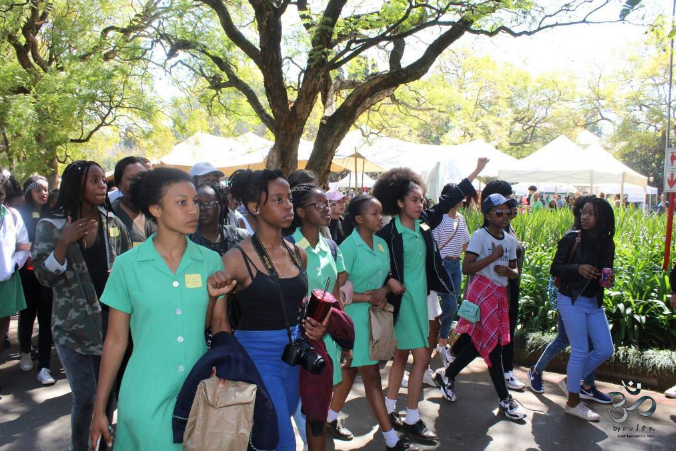
Those protecting white privilege and standards of beauty hide behind the pretense of these rules upholding the school’s image and encouraging orderly conduct. Who’s standards are we asserting if you can’t be who you are and wear your hair as it grows out of your scalp? Why can’t we challenge the status quo and the so-called school rules when they are clearly outdated, prejudice against a black child and down right racist? Why are we still governed by western standards and not African ones? Some girls weren’t even allowed to write exams before “flattening” their Afro’s, as if what is on your head determines the content in your mind.

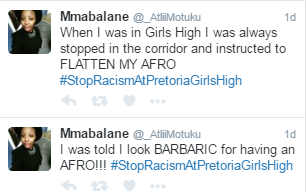
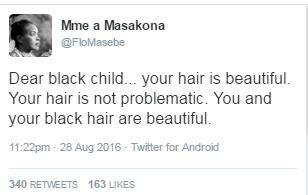
The stories our black girls shared are heart breaking and infuriating at the same time, and sadly what happened at PHSG isn’t unique and the stories are all too familiar at so-called model C schools across South Africa. I too went through similar situations when I was a student sporting my curly and bushy mane proudly through the school’s halls, tasked to police “exotic” hairstyles (braids and weaves) as a member of the student council. You would have thought that by now over 10 years later, things would be different, yet we still face the same problems today.
However we live in hope that as the wheel turns and we continue to voice our outrage, the authorities will do something about it other than talk to the media, and that change will be rolled out to not only schools in Gauteng, but across South Africa as well. Change will come and the next generation will not have to go through the same things we did because of these brave little girls who are making sure their voices aren’t silenced, fighting a fight they shouldn’t have to in the first place. There is a petition you can sign to Stop Racism At Pretoria Girls High and ensure that their demands are met at the highest levels through the correct channels. Sign here http://bit.ly/2by0AC2
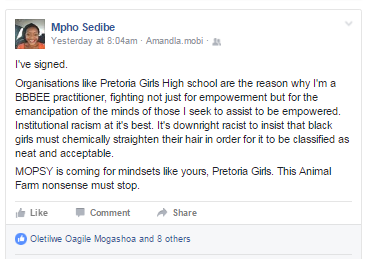
Oh and since you’re still here, read through this article by MALAIKA EYOH, grade 12 student at Pretoria High School for Girls who sums it all up from first hand experience. Aluta Continua black child.

Serena has won exactly 1 in every 3 Grand Slams she’s entered, if that’s not #blackgirlmagic, then I don’t know what is.
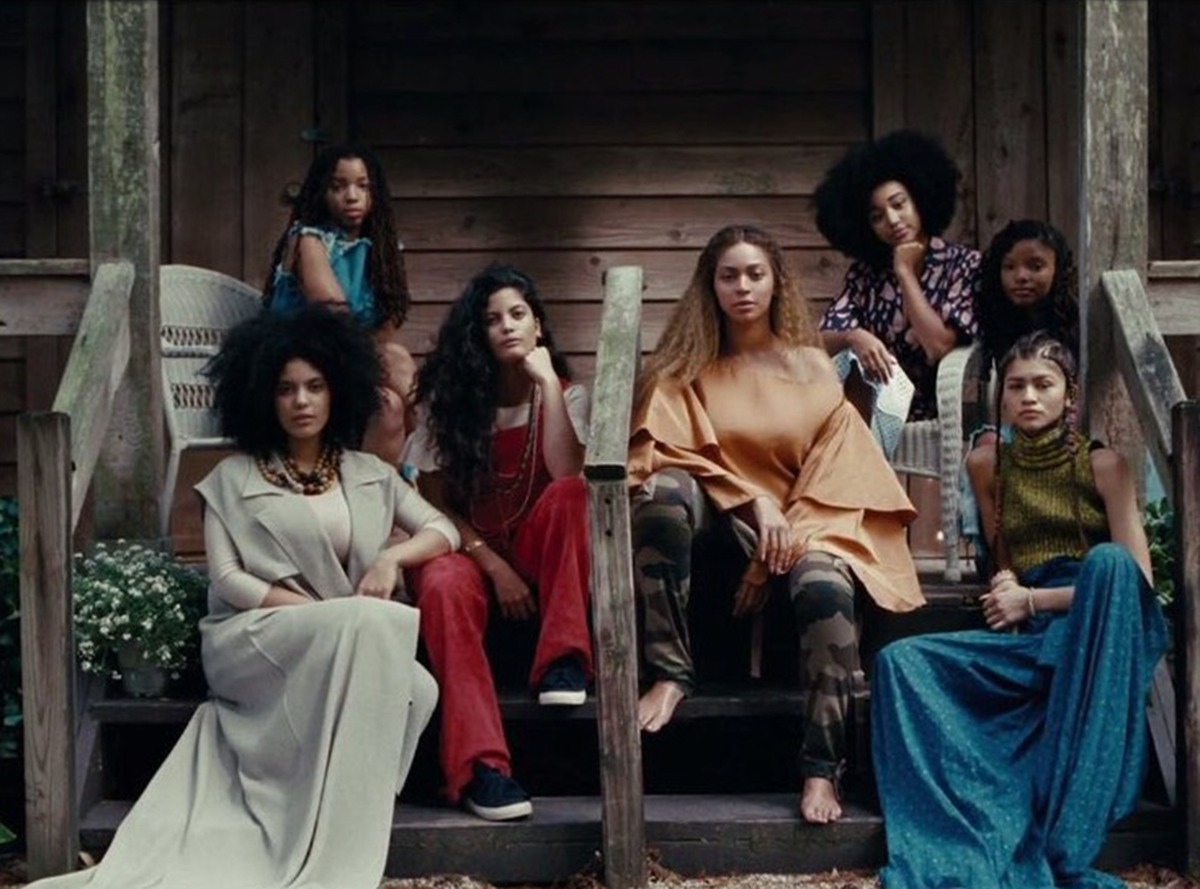
Black Lionesses in the workplace face what’s called “Double Jeopardy”. This pertains to gender bias, meaning the fact that they are neither white nor male has already placed them at a disadvantage in the world of work across the globe, specifically in corporate. As if that’s not hard enough, the general stats don’t paint a pretty picture either for our black lioness..
However it’s not all doom and gloom..
The status of women in the South African economy is slow and steady, given the fact that we are crippled by the triple threat of unemployment, inequality and poverty. However we have our very own Minister in the Presidency responsible for Women, Ms Susan Shabangu, who has been mandated to “improve the information and knowledge on the performance of women in society.”

These stats are why I saw a need for Black Lioness, a woman who is not only powerful and stealthy, while being maternal and loving. She is a symbol of bravery, royalty and strength – afterall- who says we can’t have it all? It’s not meant to be as forceful or aggressive as it may sound, but rather motivational, encouraging and a ‘fist bump’ to the wonderful women of colour doing what they do best in every sphere of their lives, all across the world. It’s for the fierce women who are taking over their own territories and declaring that they are here to stay.
Journey with me as I showcase women of colour from all over the world living their best lives, while sharing snippets of my own life, thoughts, dreams and mommy diaries with my little cub. Let’s change the narrative of the black lioness through “celebrating the beauty, power and resilience of black women”, or as CaShawn Thompson calls it #BlackGirlMagic.